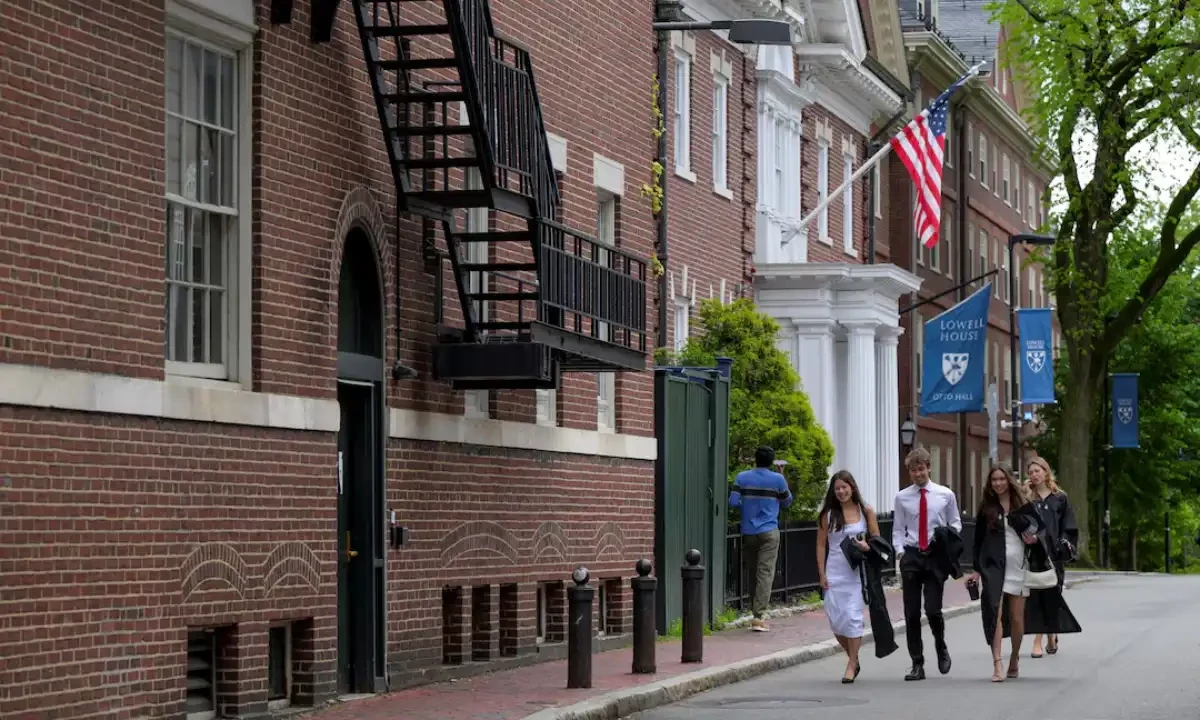Long advantageous, Harvard’s China ties become a political liability
China vehemently denies any accusations of wrongdoing in Xinjiang, but both the Trump and Biden administrations have defined Beijing’s policies in the region as “genocide.”
In another episode that has drawn questions, U.S. business intelligence firm Strategy Risks said that Ronnie Chan, who facilitated a $350 million donation to Harvard in 2014 that led to its school of public health being named for his father, property developer T.H. Chan, is a member of the China-United States Exchange Foundation.
The Hong Kong-based organization, which says its aim is to foster dialogue between the two countries, has been classified as a foreign principal under U.S. law, requiring U.S. lobbyists working for it to disclose that work to the U.S. government.
Former professor convicted
Former Harvard Professor Charles Lieber was scrutinized by a Trump program started in 2018 called the China Initiative, which was focused on fighting Chinese espionage and intellectual property theft and investigated researchers and universities over whether they disclosed financial ties to Beijing.
He was convicted in 2021 of lying about his ties to China in connection with federally funded research. In April, he became a full-time professor, opens new tab at a Chinese university.
The initiative was halted under the Biden administration after critics said it led to racial profiling and a culture of fear that chilled scientific collaboration.
U.S. lawmakers from both parties have expressed worries about the efforts by Beijing-linked student associations to monitor political activities. In April 2024, a Harvard student activist was physically ejected from an event by a Chinese exchange student not faculty or security staff - for interrupting a speech by China’s Ambassador Xie Feng.
Read more
Harvard criticised for not allowing pro-Palestinian protesters to graduate
US Supreme Court to consider race-conscious university admissions
Pressure has mounted on Harvard in Trump’s second term, with the Education Department in April asking the university to provide records on its foreign funding after it said a review of required reporting on large foreign-source gifts and contracts revealed incomplete and inaccurate disclosures.
The Trump administration’s moves against Harvard have nonetheless alarmed some China experts.
Yaqiu Wang, a U.S.-based human rights researcher who came to the U.S. from China as a student, said the Trump administration’s move to ban foreign students at Harvard was “completely counterproductive.”
“The concerns over the Chinese government’s transnational repression attempts to silence critics are very legitimate, and also espionage concerns are legitimate.” Wang said. “But to try to address that by banning, not only Chinese students, but foreign students, is just beyond comprehension.”
For the latest news, follow us on Twitter @Aaj_Urdu. We are also on Facebook, Instagram and YouTube.
























Comments are closed on this story.